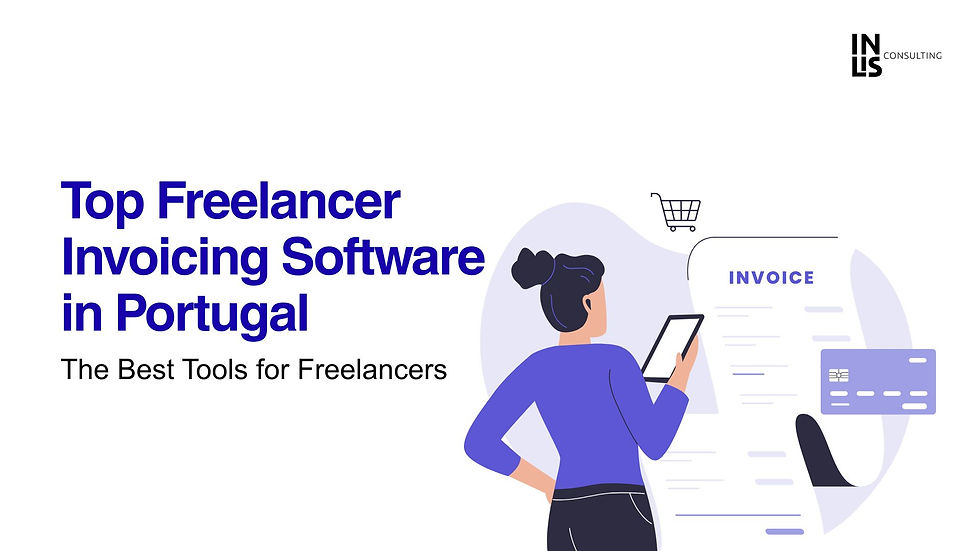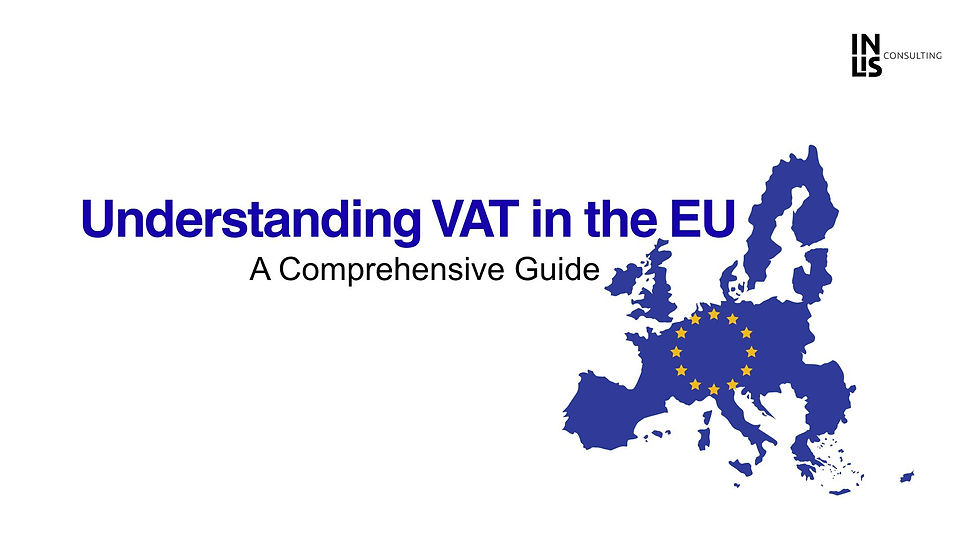New EU AML Rules: What INLIS Consulting Advises for Accountants & SMEs
- INLIS Consulting
- Aug 1
- 3 min read
The EU has introduced strict new anti-money laundering (AML) rules affecting accountants, advisors, and businesses across Europe. INLIS Consulting helps firms stay compliant through expert guidance, policy updates, and AMLA readiness support.

Background: What Changed and Why It Matters
In May 2024, the EU adopted a major package of anti–money laundering and counter‑terrorism financing laws (AML/CFT)
Regulation (EU) 2024/1624: A single rulebook for AML/CFT directly binding every member state.
Directive (EU) 2024/1640: The sixth AML directive (AMLD6), setting national obligations.
Regulation (EU) 2024/1620: Establishing the AMLA—the EU’s new AML watchdog based in Frankfurt, operational from mid‑2025
These changes significantly expand AML responsibilities beyond banks to include accountants, auditors, tax advisors, notaries, estate agents, and even football clubs or luxury goods traders.
What Accountancy Europe Recommends
E.U. has published detailed guidance on April 3, 2025, advising accountancy firms and SMEs on how to prepare for the new rules
Key Preparations:
Update internal policies and controls to align with the new single AML Rulebook.
Strengthen Customer Due Diligence (CDD), including identification and monitoring procedures.
Enhance procedures around beneficial ownership transparency, suspicious activity reporting, and data retention.
Important Changes:
Obligatory entities (including accountants and advisors) now face stronger due diligence, more frequent updates to client records, and must report suspicious activities promptly.
The beneficial ownership threshold, harmonized across the EU, now requires identification of any person owning or controlling at least 25% of an entity—calculated across ownership chains.
A €10,000 cap on cash payments applies EU-wide to reduce large-scale anonymous transactions.
What the New EU AML Framework Introduces
Creation of AMLA
The Anti‑Money Laundering Authority (AMLA) launches in mid‑2025, headquartered in Frankfurt.
It will supervise high‑risk entities directly, coordinate national supervisors, and impose sanctions when needed.
Broader Scope of Entities
Includes crypto-asset service providers, football clubs, real-estate intermediaries, and operators linked to residence schemes or crowdfunding platforms.
Tighter Controls
Stronger due diligence, especially for high net worth individuals and transactions over €5M.
Mandatory KYC updates at least every five years (or annually for high-risk clients)
Enforcement of a harmonized beneficial ownership register system, interconnected across the EU with backward-looking data.
Cash and Crypto Controls
€10,000 EU-wide limit on cash payments to prevent anonymous large transactions.
Crypto firms must follow travel rule protocols—collect and share sender/receiver data—and comply with full AML requirements similar to banks
Implementation Timeline
Phase | Description |
Mid‑2025 | AMLA becomes operational in Frankfurt |
10 July 2027 | AML Regulation & Directive come into force across the EU |
By 2028 | AMLA begins direct supervision of top high‑risk entities |
We urge firms to prepare now to ensure smooth compliance by July 2027 and beyond.
Concrete Action Steps (with INLIS Support)
If you're an accounting or advisory firm—or part of a national institute—here’s a checklist to stay ready:
Assess gaps in your current AML/CFT framework (INLIS can help).
Update internal policies to comply with the Single Rulebook.
Verify beneficial owners (≥ 25%) using enhanced techniques.
Update client records regularly, especially for high-risk profiles.
Train your team: Understand AMLA’s role and future supervisory model.
Upgrade systems: Automate monitoring, reporting, and data storage.
Monitor feedback from governments and FIUs leading up to 2027.
Why This Matters for the Accountancy Profession
The new rules place accountants and auditors at the center of AML/CFT enforcement.
Non-compliance may result in penalties and reputational risks.
With AMLA overseeing high-risk entities and crypto players, robust compliance systems are essential.
Transparent ownership, accurate client records, and strong risk assessment processes are now mandatory.
Final Thoughts
The EU’s new AML regime marks a transformational shift in how financial crime is prevented across Europe. We advise firms to meet these demands confidently. Early action, robust systems, and comprehensive training will ensure readiness well before the full rules apply in 2027.




Comments